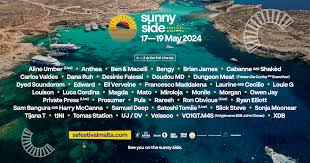
Introduction
Malta, a small archipelago located in the central Mediterranean Sea, is a country rich in history, culture, and natural beauty. With its strategic location between Europe and North Africa, Malta has been an influential connector of civilizations for centuries. Its importance in European and Mediterranean geopolitics, as well as its status as a tourism hotspot, makes it a topic of notable relevance.
Current Tourism Trends
As of recent reports, Malta has experienced a significant resurgence in tourism post-pandemic. In the first half of 2023, Malta welcomed 1.7 million visitors, up from 1.1 million in 2022. The island’s warm climate, beautiful beaches, and historical sites such as the ancient capital of Mdina and the UNESCO World Heritage site of Valletta have drawn travelers from around the globe.
Additionally, the Maltese government has invested in promoting sustainable tourism to preserve its natural and cultural resources. Initiatives include tourist education programs and funding for eco-friendly facilities. This commitment is vital not only for the environment but also for the longevity of Malta’s tourism economy.
Cultural Significance
Malta is home to a unique blend of cultures, influenced by various civilizations, including the Phoenicians, Romans, Moors, Knights of St. John, and the British. This rich tapestry is evident in its language, cuisine, and festivals. Maltese, a Semitic language with Latin influences, is an official language alongside English. Traditional Maltese dishes feature seafood, rabbit, and a variety of baked goods that reflect the island’s agricultural heritage.
Events such as the Malta Carnival and the Isle of MTV concert showcase local talent and celebrate Maltese traditions, making the island a vibrant center of culture.
Future Outlook
The future of Malta appears promising as the country continues to innovate in its tourism sector. Forecasts indicate that visitor numbers could continue to rise, with the government aiming to bolster its image as a digital nomad destination. Initiatives to improve broadband infrastructure and attract remote workers are on the agenda, highlighting Malta’s adaptability to ongoing global changes.
Conclusion
In summary, Malta is not just a picturesque vacation spot; it is a dynamic hub of history, culture, and modern development. As tourism boosts the economy and preservation efforts safeguard its rich heritage, Malta is positioned to remain a key player on the Mediterranean stage, inviting visitors to explore its exhilarating past and promising future.



